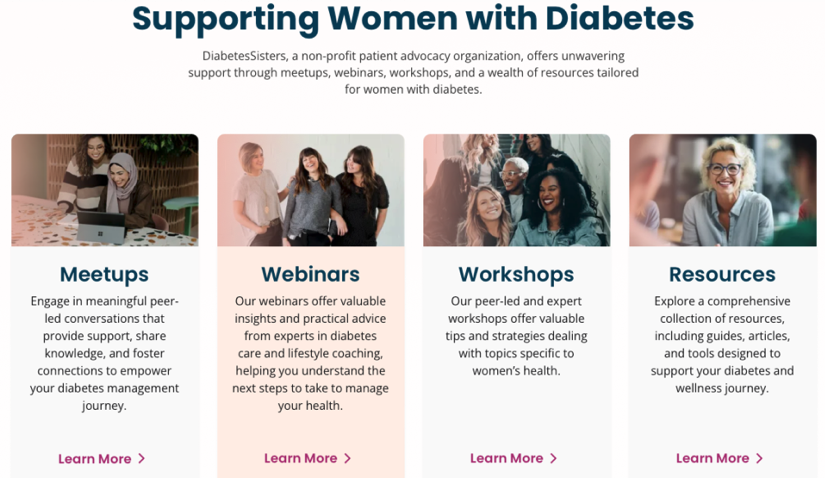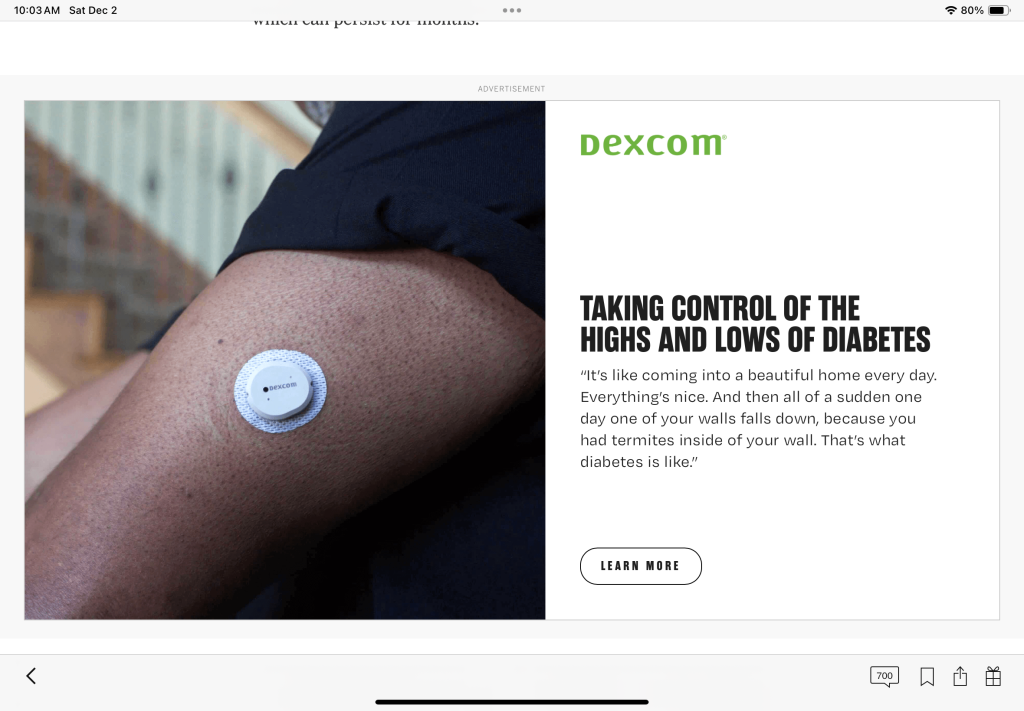
I’ve often been asked why I don’t wear a pump. I do MDI (multiple daily injections), always have. I’m usually asked the pump question by a pump user, who of course extols the benefits of using a pump. And I am sure there are many and it is a wonderful device for many.
Sometimes my pump wearer then tells me they also take pump vacations. It is what it sounds like it is. They take a break from wearing their pump and do injections instead for a while. Wearing a pump, as most (all) devices, has its drawbacks as well as its virtues. In the case of a pump, although if you wear one you’ll know better than me, drawbacks include changing sites, occluded tubing or any other pump failure, carrying tons of supplies, where to wear it for the beach.
Yet, in all the years I’ve heard people talk about taking a pump vacation, I’d never heard, or thought about myself, taking a CGM vacation. Yes, I wear a CGM. Currently Libre 3 Plus. I’d never thought of taking a break until I had reason to do so a week ago.
How’s it going? Remarkably, actually. I’m back to checking my glucose on a meter about 7 days a day. Do I like the finger sticks? Nope, no more than before. But, I’m surprised (amazed) that when I do a check, my numbers are great (I avoid saying ‘good’ as numbers aren’t “good” or “bad”). They are nearly always in range and numbers I like: 83, 101, 98. Huh? How could it be?
I have to guess it’s because of two values I hold. The first is routine. I eat and exercise pretty similarly day to day so I’ve learned my patterns, how my blood sugar reacts. It’s pretty similar day to day. That was the second value by the way, learning my patterns. Which of course came from years of wearing a CGM.
I don’t know how long I’m going to wait before I start up my next sensor. I’m enjoying this vacation. If you’ve never done it, you might like to try. My mind no longer obsesses about my numbers (although it surely did the first day I was CGM-free). That means there’s more space up there and a certain carefreeness. I feel a little more ‘normal,’ and a little less like a person with diabetes. Trust me, I didn’t expect this. But, hey, interesting. (Caveat: I’m no doctor, you need to be comfortable with this decision).
I gave up my CGM last week because I’m experimenting with photobiomodulation (red light therapy). I was going to do a red light therapy treatment on a bed of lights called the Novothor and I didn’t want to risk that the sensor would be affected or shut off. Simple as that.
I’ll write more about photobiomodulation soon. It’s a healing modality that uses certain wavelengths of light with really no side effects. In the short run, it can help heal injuries, lower inflammation, aid blood flow and charge up mitochondria for more energy. In the long run, it may even help people with diabetes avoid what’s come to be called Type 3, brain conditions like dementia and Alzheimers. People with diabetes are at higher risk of such conditions due to the damaging effect of high and low blood sugars on the brain. More to come.
So just a suggestion – next time you feel overwhelmed by your diabetes you might want to take a CGM vacation. See how you feel and what happens.
That said, I know I’ll be putting my sensor on again fairly soon. It’s still an amazing tool and likely, in the long run, I trust it will keep me healthier than without it.








